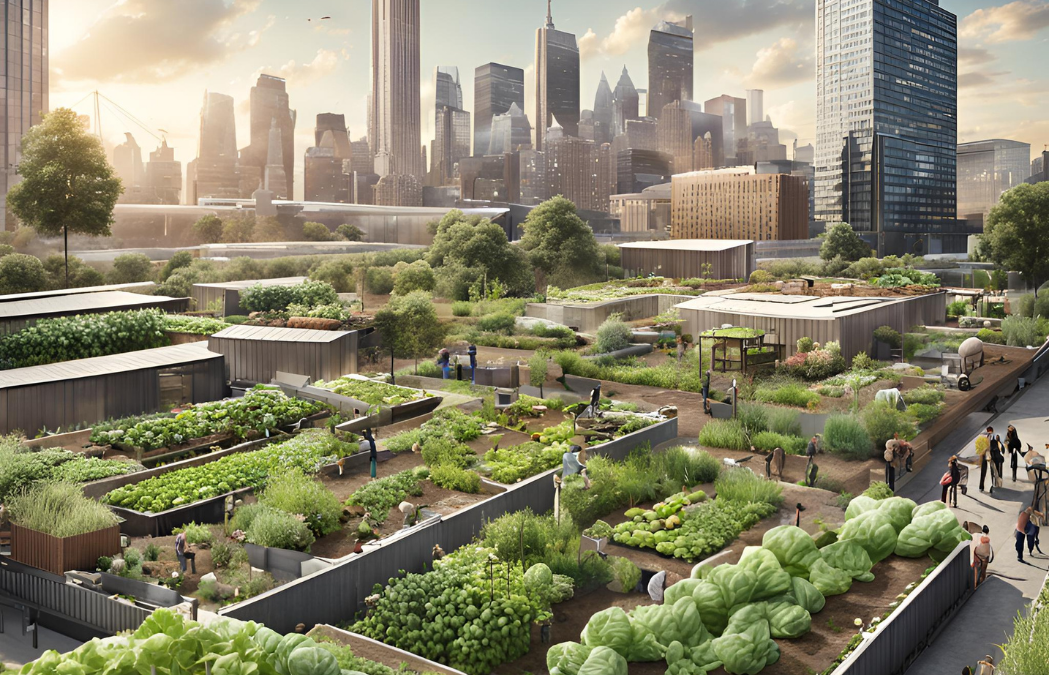The Athens Food Systems Lab (AFSL) began in December 2022 as a hub to connect, facilitate, and coordinate municipal departments, agencies, and elected officials regarding municipal food policy. Following the third plenary meeting on March 1, 2024, the City of Athens took another step forward.
On March 29, AFSL organized a workshop with civil society and social economy stakeholders focused on social cohesion within the food system. These organizations operate across all stages of the food system—from production, distribution, and consumption to food surplus management—while also addressing welfare, empowerment, and employment.
Goals and Activities of the Workshop
The workshop aimed to network relevant stakeholders and facilitate synergies among them. The organizations presented their work in several key areas:
- Food Security for Vulnerable Groups: Ensuring access to nutritious food for those in need.
- Food Surplus Management: Linking surplus management to environmental sustainability.
- Healthy and Sustainable Nutrition: Promoting nutritious food choices.
- Professional Skills in the Food Sector: Enhancing skills in farming, cooking, restaurant services, and food hygiene.
- Social Cohesion through Urban Agriculture: Activities such as communal vegetable gardens.
- Employment in the Food Sector: Creating jobs through social cooperatives for vulnerable groups.
It is worth noting that Most organizations endorsed organic farming and the use of organic products, emphasizing the importance of sustainability.
Recommendations and Proposals
During the workshop, participants discussed municipal policies that can contribute to the transition to a sustainable food system with a focus on social cohesion. According to the stakeholders’ proposals, key recommendations included:
- Develop Accurate Data and Methodology: Tackle food insecurity effectively and efficiently through robust data collection within social food services
- The City of Athens to join the “Alliance for the Reduction of Food Surplus Losses and Waste“: Participate in initiatives to reduce food waste.
- Foster Cooperation: Develop partnerships among civil society organizations, enterprises, academia, and the municipality, focusing on vulnerable groups. Proposed actions included consulting services for sustainable food enterprise development, utilizing empty municipal spaces for social inclusion enterprises, and participating in relevant EU programs and funding.
- Pilot Green and Social Public Procurement for Food: Implement a pilot project to promote sustainable procurement practices.
- Create a Communication Platform: Raise awareness about sustainable food practices.
- Promote Neighborhood-Level Social Cohesion: Support communal vegetable gardens and similar initiatives.
- Establish a Municipal Food Policy Council: Identify issues and advance relevant solutions.
Next Steps and Initiatives
On behalf of the City of Athens, SynAthina, the platform for civil society organizations, introduced a Food (TROFI) category on its portal for stakeholders to register their organizations. AFSL looks forward to the next steps and initiatives from all participants, which may form a fundamental step toward establishing a municipal food policy council.
The following organisations have participated in the meeting:
- Welfare – social food services:
Equal Society, Boroume CSO, Intersos CSO, - Empowerment:
Odysseia CSO, Organisation Earth CSO, Kalotrofa Project – Panteion University, DOCK social economy capacity building CSO, Athens Municipal Clinics - Production – social cooperatives:
Myrtillo restaurant, Diaplous – olive oil and honey production, Shedia restaurant, Treli Rodia – organic plants nursery, The circle of Mushrooms – mushrooms urban indoors cultivation, Trofi Lab.
